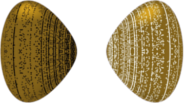

|
||||||||

|
||||||||

|
||||||||

|
||||||||

|
||||||||

|
||||||||

|
||||||||

|
||||||||

|
||||||||

|
||||||||

|
||||||||
Institut Henri PoincaréÀ la redécouverte des points rationnels |
|
||||||||
Cours
Petite hauteur dans des grands corps : sur les propriétés de Northcott et Bogomolov et la conjecture de LehmerSara CheccoliIn this course we will study certain problems concerning algebraic numbers of small height. The (logarithmic Weil) height of an algebraic number \(\alpha\) is a non-negative real number that measures the "arithmetic complexity" of \(\alpha\). By Kronecker's theorem the algebraic numbers of height zero are precisely zero and the roots of unity, but what about numbers of non-zero "small" height? There are two important statements in this context:
Now, one could ask: in which cases the above statements are still true if one "forgets the degree"? More precisely, following Bombieri and Zannier, we say that a set \(K\) of algebraic numbers has the Northcott property (N) if it contains only finitely many points of bounded height and we say that \(K\) has the Bogomolov property (B) if 0 is not an accumulation point for the values of the height of the elements in \(K\). It is easy to see that property (N) implies property (B) and that they both hold when \(K\) is a number field. However deciding the validity of these properties for an infinite algebraic extension \(K\) of \(\mathbb{Q}\) is in general a difficult problem, which has been studied by many authors. The goal of this mini-course is to give an overview of the known results on this subject and some open problems. If time permits, we will discuss some recent works of Breuillard and Varjù, which show the equivalence between the Lehmer's conjecture and the growth conjecture in geometric group theory. |
|||||||||



